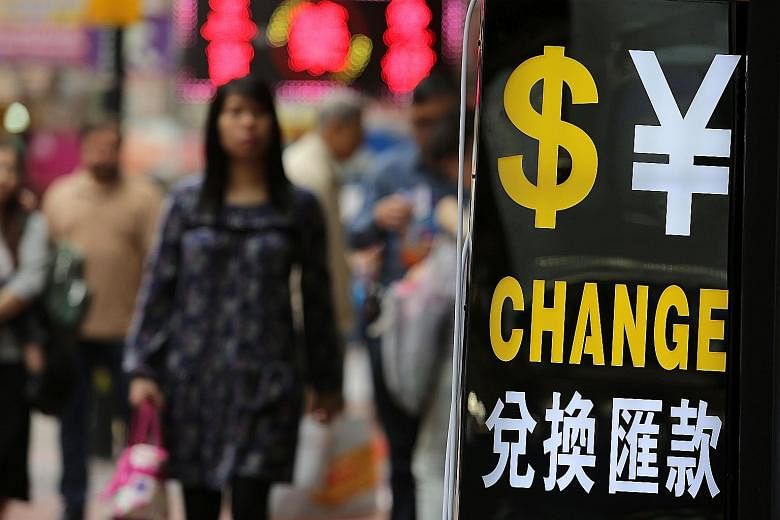HONG KONG • The Panama Papers have put the spotlight on Hong Kong as a hub for setting up offshore firms, with much of the money flowing through the city coming from mainland China.
Revelations yesterday that more than 16,300 of Panamanian law firm Mossack Fonseca's active shell companies were incorporated through its Hong Kong and China offices - 29 per cent of the worldwide total - show the lengths to which wealthy Chinese will go to safeguard their money and flout domestic currency controls.
Hong Kong is a key cog in the process due to its proximity and financial freedoms.
"Chinese are moving the money offshore because the economy is slowing," said Mr Andrew Collier, managing director of Hong Kong- based Orient Capital Research.
"The property market in many parts of the country is collapsing... and there's concern about the anti-corruption campaign and the impact that may have on the safety of capital in China."
Analysts say that one way the Chinese can generate income outside the mainland is to falsify trade and service invoicing.
As well, by underpricing goods exported through Hong Kong or overpricing those they import through the city, companies can generate extra cash to be siphoned off into offshore accounts set up in the city.
Chinese companies can also apply for foreign exchange at domestic banks for purchases but overstate the amount they need, said Mr Collier. The extra cash can then be moved into an offshore account.
"It is very hard for a bank to work out which invoices are correct and which are not," said Mr Collier.
The amount of capital moved out of China is limited to US$50,000 (S$68,000) per person a year, but funnelling more into secretive offshore accounts is made easy through Hong Kong, said shareholder activist David Webb.
Earning a commission for taking money across the border from the mainland to Hong Kong, "money mules" strap bundles of notes to their bodies to try to duck customs, or hide money in luggage. Currency exchange shops in Hong Kong also facilitate transferring money from wealthy Chinese overseas.
Cash and cheques moved out of China are often sunk into Hong Kong property, forcing up prices in recent years.
In another money-moving method, expensive credit card purchases such as jewellery and cameras are sometimes refunded in cash immediately at shops, which earn a commission in the process.
AGENCE FRANCE-PRESSE

